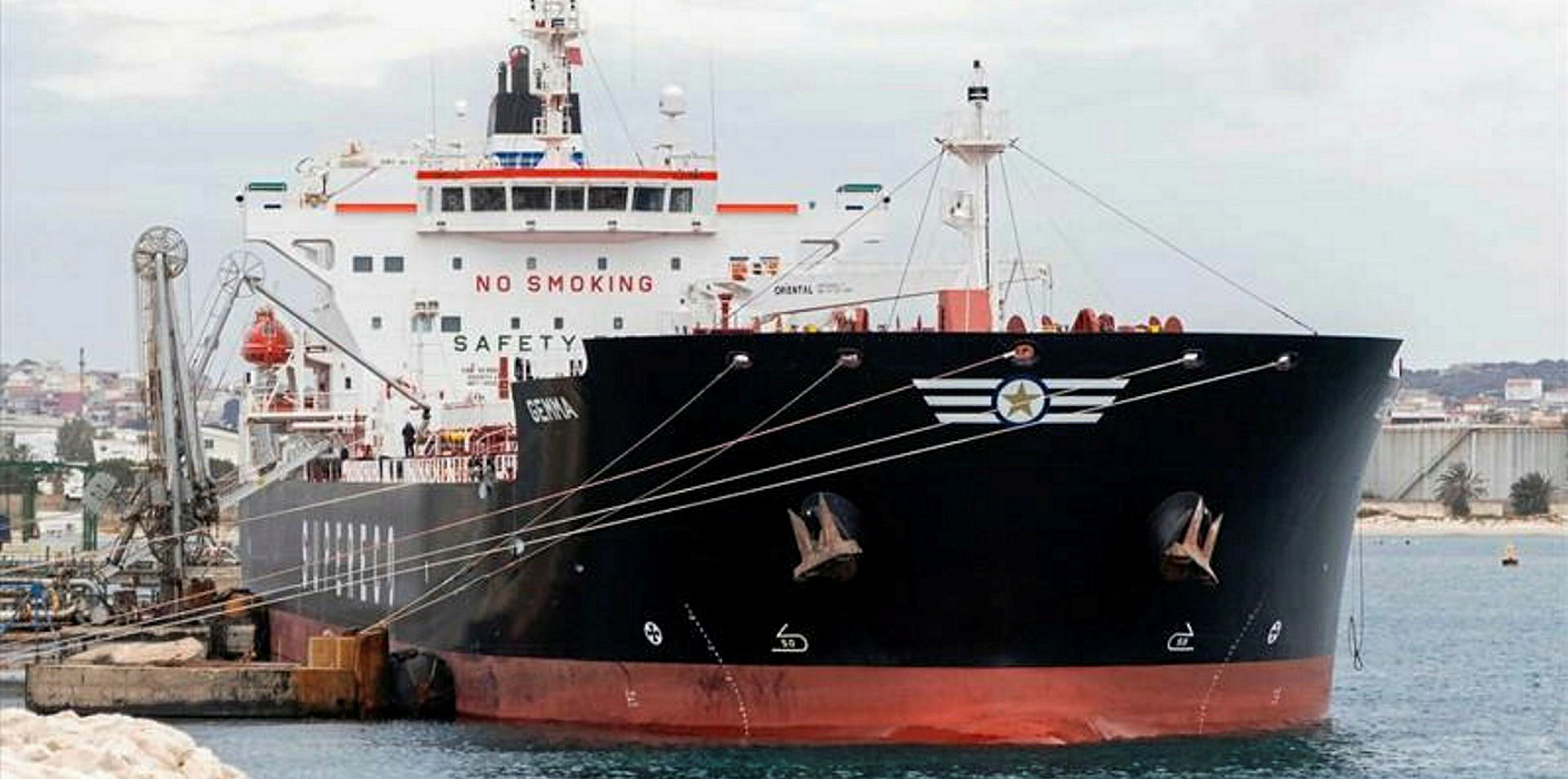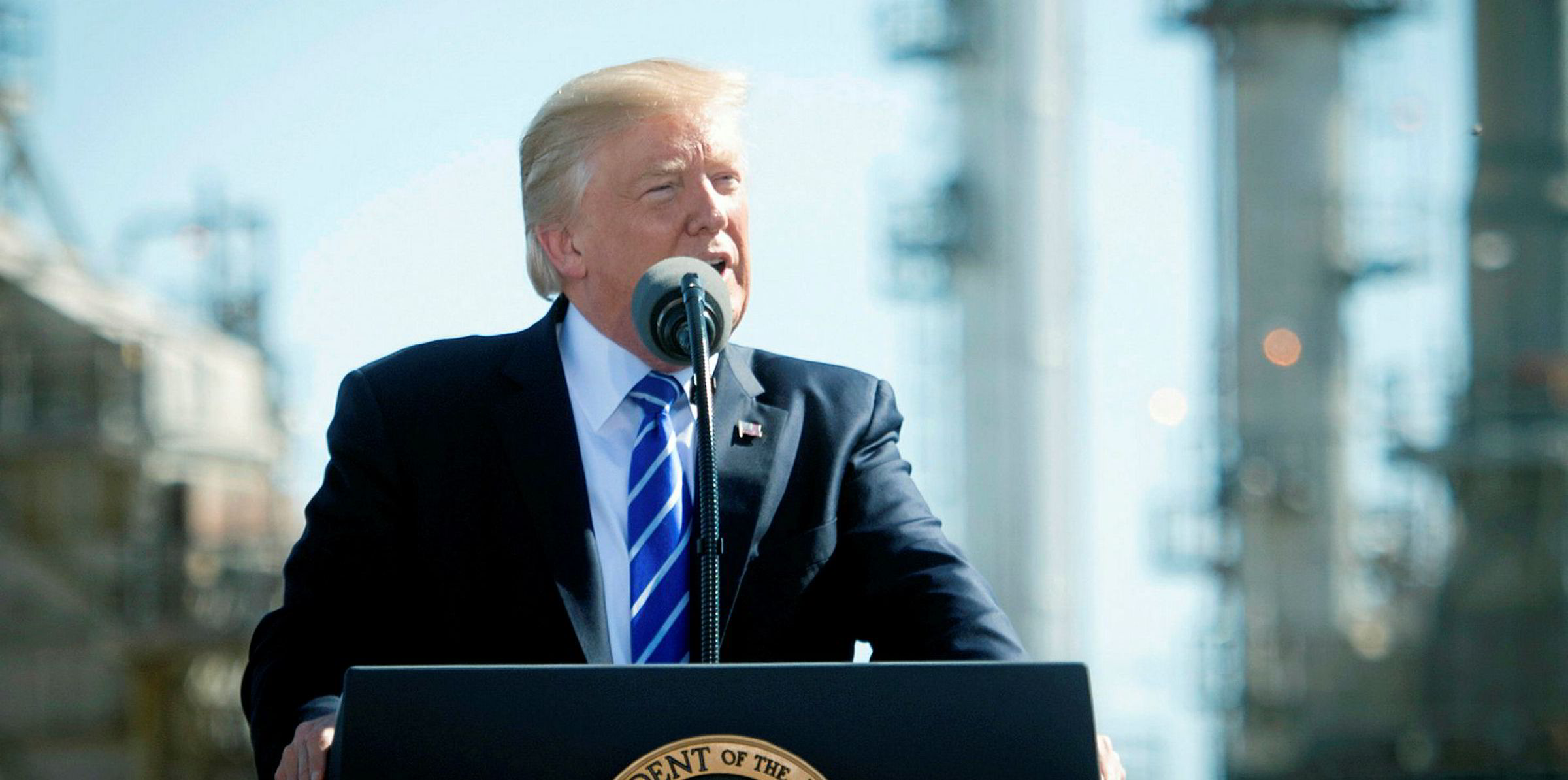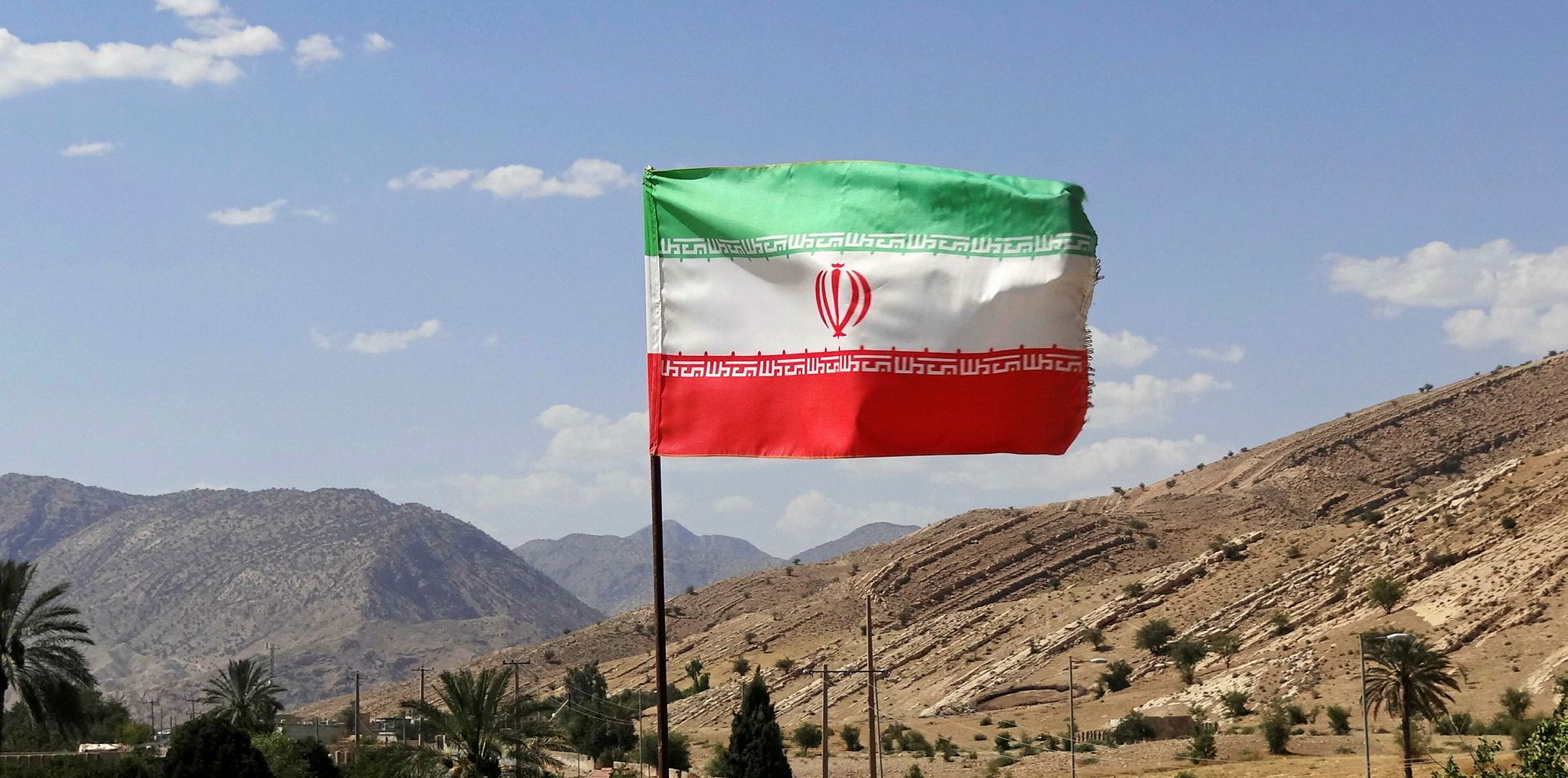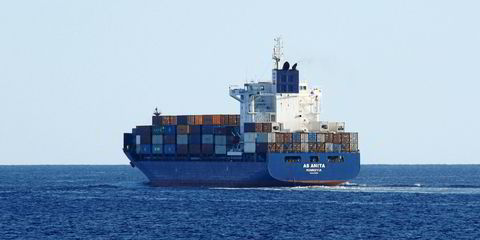A Greek-managed MR product tanker is shipping diesel to Venezuela on humanitarian grounds from Italy’s Milazzo refinery, according to industry data and sources.
The move, which comes after the refiner received crude from the South American country over the weekend, comes as US pressure on trade with Venezuela has yet to extend to European refiners and such humanitarian cargoes remain exempt from sanctions.
The 40,000-dwt Gemma (built 2018) is due to arrive at Amuay Bay on Thursday with its 280,000-barrel cargo lifted from Milazzo on 21 June, data from Kpler and VesselsValue shows.
“The Gemma is involved in the importation of ULSD (ultra low-sulphur diesel) in Venezuela,” the ship's manager, Super-Eco Tankers Management, told TradeWinds.
“Said cargo is exempt from any sanctions and is authorised for humanitarian purposes.”
Industry databases indicate the Malta-flagged ship’s registered owner is Redstart Navigation, which owns just this vessel.
Since Washington imposed sanctions on Venezuela’s oil sector in January 2019 to force a regime change, the Opec member state has faced a worsening fuel shortage due to the lack of maintenance on domestic refineries.
The Office of Foreign Assets Control (Ofac), which enforces US sanctions, declined to comment on the Gemma shipment.
Pressure from the US
Despite the US and about 60 other countries recognising opposition leader Juan Guaido as interim president before a new election, Nicolas Maduro has maintained his grip on power with the support of military commanders.
Over the past few quarters, Greek commercial managers have emerged as the top players on the high-risk, high-reward Venezuelan tanker trade.
Ramping up pressure on Maduro, the US has begun to target vessels shipping oil to and from Venezuela since June.
Six tankers managed by Greek and Cypriot firms had been sanctioned for transporting Venezuelan oil to Asia for some weeks, but Washington delisted them after some of their managers openly promised to stay out of Venezuela.
The US is also seeking to seize four Greek-linked tankers carrying Iranian gasoline to Venezuela, namely the 37,400-dwt Bella and 37,300-dwt Luna (both built 2000), 47,400-dwt Bering (built 1998) and 46,200-dwt Pandi (built 1996).
In addition, Ofac has sanctioned Mexican outfit Libre Abordo, which reportedly claimed it had exchanged humanitarian aid with Venezuela via an oil-for-food pact.
Apparent European exemptions
But Washington has stopped short of targeting refiners in Europe, where many countries also support the ousting of Maduro.
According to industry sources, Eni and Repsol have been receiving crude from Venezuela and occasionally delivered products back under their oil-for-debt agreements with Petroleos de Venezuela SA (PDVSA).
The two refiners have invested in Venezuelan’s upstream activity via joint ventures with state-owned PDVSA since the 1990s, so those cargo movements are seen as a way to recover their debts, as US dollar transactions are forbidden due to the sanctions.
On Sunday, the 157,488-dwt Delta Tolmi (built 2010) delivered about 512,000 barrels of Venezuelan crude to Milazzo, a joint venture between Eni and Kuwait Petroleum, Kpler data suggests.
Managed by Greece’s Delta Tankers, the suezmax is scheduled to discharge similar amounts at Genoa this week, according to port sources. Eni operates the port’s only oil terminal via joint venture Porto Petroli.
The Italian refiner did not reply to emails from TradeWinds seeking comment.
Separately, Kpler data shows the 109,990-dwt Delta Star (built 2013) is sailing to Repsol’s Petronor refinery after lifting about 500,000 barrels of Venezuelan oil on 28 June.
The vessel, also managed by Delta Tankers, is scheduled to arrive on 14 July.
“Repsol receives cargoes as payment for outstanding debts. Repsol is fully compliant with international laws and regulations and will, of course, remain so,” the Spanish refiner said in an emailed statement.








